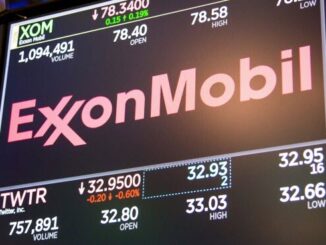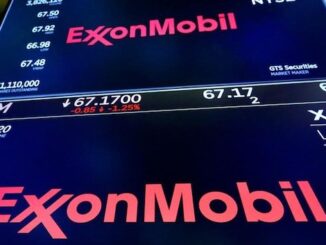
There’s nothing like a good energy crisis to bring a dose of reality to climate change and renewable energy fantasies.
It seems like it was barely a few months ago that every big financial institution and every big energy company was completely on board with the crash program to eliminate carbon emissions from the world. In 2021, in the run-up to the Glasgow climate conference, a large group of banks and other financial institutions formed something called the Glasgow Financial Alliance for Net Zero, or GFANZ, with the mission of using their financial leverage to force the net zero transition on the world. From the GFANZ website:
GFANZ brings together independent, sector-specific alliances to tackle net-zero transition challenges and connects the financial community to the Race to Zero campaign, climate scientists and experts, and civil society.
All the cool kids raced to join up. A list of GFANZ members includes more than 500 major institutions, including essentially all of the largest banks in the world (U.S. members include JP Morgan Chase, Citibank, Morgan Stanley, Bank of America, Wells Fargo, etc., etc.), not to mention asset managers, insurers, and on and on.
Even more absurd were the pledges of the big oil companies to eliminate their carbon emissions. (From SP Global, September 20, 2021: “Oil majors pledge net zero target, update goals to cut methane, carbon intensity.” Pledgers included all the biggest companies: Exxon, Chevron, BP, Shell, etc., etc.). It’s like they had no idea they are in the oil business. Who us?
Well, now we’re heading into the inevitable energy crunch resulting from this folly (along with lots of destructive government policies), and reality is catching up. At Bloomberg News today the headline is “Banks Try Quiet Quitting on Net Zero.” Suddenly it’s become safe to admit that this was all a big mistake:
Several of the largest banks, including JPMorgan, Bank of America, and Morgan Stanley, headed into the 2021 United Nations Climate Change Conference (COP26) as members of [GFANZ], a group of roughly 500 financial sector entities [that were] publicly committed . . . to reach net-zero carbon emissions by midcentury. [But] by September [2022][JPMorgan, Bank of America and Morgan Stanley] were [all] among a faction ready to quit, according to sources familiar with the matter.
What happened? Well, with intentionally-created scarcity, fossil fuel prices are now up, and there is lots of money to be made developing resources to sell at high prices:
The revived fortunes of fossil fuels, especially coal, may explain some of the weakened resolve for decarbonization. Global bank lending to fossil fuel companies is up 15%, to over $300 billion, in the first nine months of this year, from the same period in 2021, according to data compiled by Bloomberg. This is Wall Street just doing its job: making money. Banks earned more than $1 billion in revenue from fossil lending during the first three quarters, in line with 2021. Why quit business with a booming sector over a distant climate goal?
And then there is the prospect of shareholder lawsuits if you just thumb your nose at profitable business:
Banks may not have originally understood the full litigation risks tied to signing net-zero commitments.
Some of the executives of these companies may have even figured out that intermittent renewable energy sources don’t really work to power a modern economy, although I haven’t seen any of them say exactly that. The one who has gotten closest is Jamie Dimon of JP Morgan, who was asked by Representative Rashida Tlaib at a Congressional hearing on September 22 whether he would “commit to stop funding new fossil fuel projects.” He responded: “Absolutely not, and that would be the road to hell for America.” Finally, a little backbone.
Further in the backbone category, let us put CEO Michael Wirth of Chevron. Wirth gave an interview yesterday to the Financial Times (behind paywall) that was full of politically incorrect zingers. A few excerpts:
Despite heavy global investment in renewables in the past 20 years, fossil fuels still met about 80 per cent of global demand, and governments had to hold an “honest conversation” about the scale of the energy challenge, Wirth said. . . . “The reality is, [fossil fuel] is what runs the world today. It’s going to run the world tomorrow and five years from now, 10 years from now, 20 years from now.”
Best of all, Wirth said straight out that Chevron was planning to increase oil supply:
[Wirth] rejected the blame attributed to oil companies for providing “a legal product that complies with all the laws”, and for which there was still consumer demand — and reiterated his pledge that Chevron would continue to increase oil supply. “If people want to stop driving, stop flying . . . that’s a choice for society,” he said. “I don’t think most people want to move backwards in terms of their quality of their life . . . our products enable that.”



